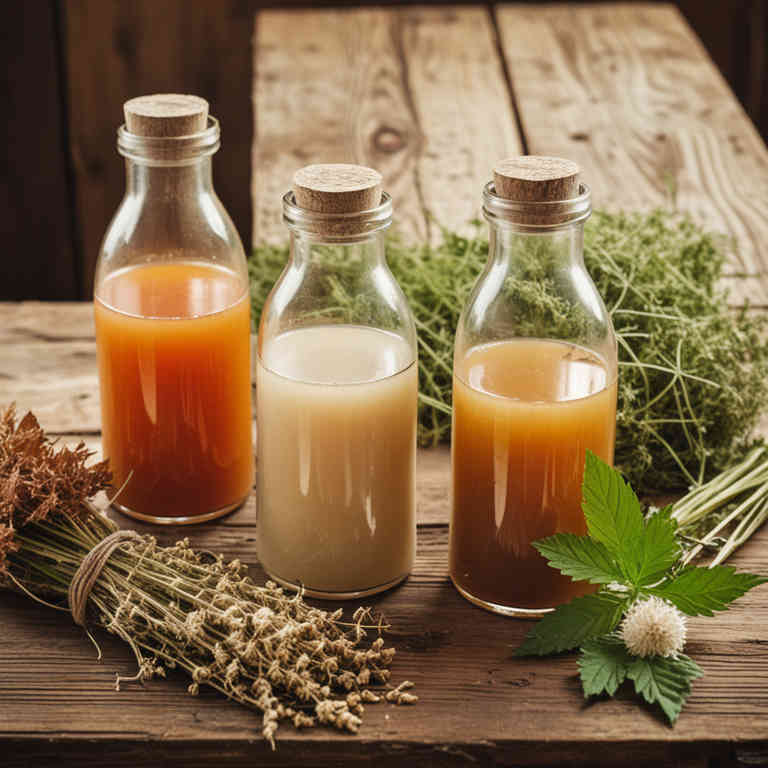Hydrastis canadensis juice for medicinal use

Hydrastis canadensis juice is a preparation made from the rhizomes of the goldenseal plant, which is native to North America.
It is known for its bitter taste and has been traditionally used in herbalism for its antimicrobial and anti-inflammatory properties. The juice is often employed to support digestive health and as a natural remedy for skin conditions due to its astringent effects. It is also used in herbal formulations to help with respiratory and urinary tract infections.
However, it is important to note that goldenseal is not recommended for long-term use due to potential toxicity and interactions with certain medications.
Uses
Hydrastis canadensis juice has been used to treat various ailments for centuries, particularly in traditional medicine.
Historically, it was valued by Indigenous peoples of North America for its antimicrobial and anti-inflammatory properties, often used to address digestive issues and skin conditions. In modern times, it is still utilized in herbal remedies for its potential to support digestive health and as a natural detoxifying agent. The juice is also recognized for its high concentration of berberine, a compound with broad pharmacological applications.
Today, it is commonly found in supplements and topical preparations, reflecting its enduring legacy in both traditional and contemporary health practices.
Benefits
Hydrastis canadensis juice has health benefits such as promoting digestive health, supporting skin conditions, and enhancing immune function.
It contains berberine, a compound known for its antimicrobial and anti-inflammatory properties. This preparation may help in treating gastrointestinal disorders like ulcers and infections. It is also used topically for its astringent and healing properties on the skin.
However, it should be used with caution due to potential side effects and interactions with certain medications.
Constituents
Hydrastis canadensis juice active constituents include alkaloids such as berberine, canadine, and hydrastine, along with other bioactive compounds like essential oils and saponins.
These compounds are known for their antimicrobial, anti-inflammatory, and antioxidant properties. Berberine, in particular, is recognized for its ability to support digestive health and may help in the treatment of gastrointestinal infections. The juice is traditionally used to address issues such as indigestion, skin conditions, and as a natural detoxifier.
Due to its potent nature, it is often used in herbal medicine for its cleansing and healing effects on the body.
Preparation
To make Hydrastis canadensis juice, first gather fresh golden seal roots, ensuring they are harvested sustainably and ethically.
Wash the roots thoroughly and chop them into small pieces to facilitate extraction. Place the chopped roots in a blender or a juicer and add a small amount of water or a mild citrus juice to help with the extraction process. Blend or juice until a liquid is obtained, then strain the mixture through a fine mesh or cheesecloth to remove any pulp or residue.
Store the resulting juice in a sealed container in the refrigerator for up to a week, and use it as needed for its purported health benefits.
Side Effects
Hydrastis canadensis juice may lead to gastrointestinal discomfort, including nausea, vomiting, and diarrhea, due to its high concentration of alkaloids.
It can also cause increased heart rate and anxiety in some individuals. Long-term use may result in more severe side effects such as liver damage or kidney issues. The juice is known to interact with certain medications, potentially reducing their effectiveness or increasing toxicity.
It is important to consult a healthcare professional before using this preparation, especially for prolonged periods or in combination with other treatments.